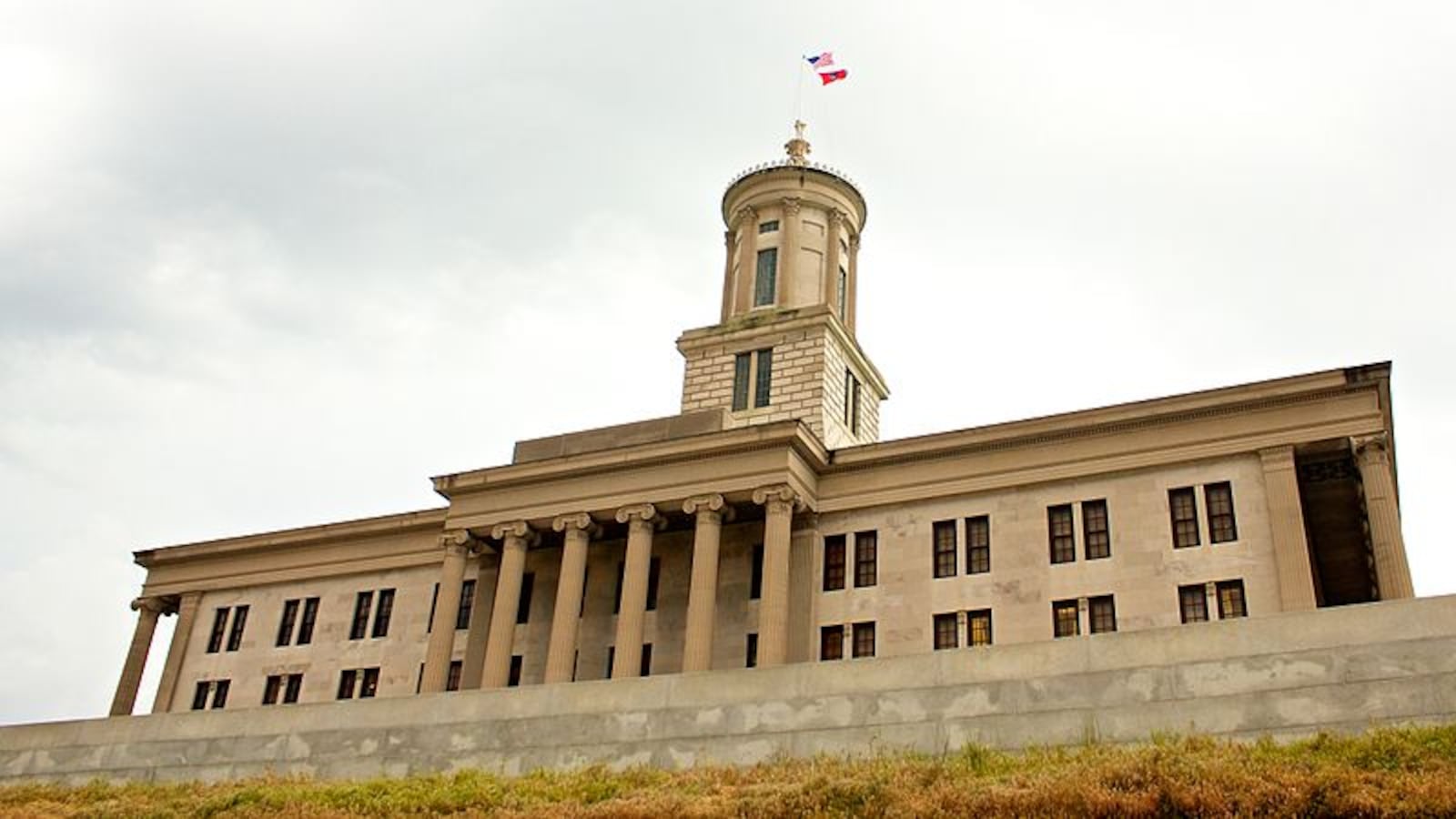
Speaker Beth Harwell, historically a supporter of the Common Core State Standards, said she recognizes they might be on the way out — and as long Tennessee retains high standards, she’s not worried.
“I really think Tennessee is going to get to the point where they’ll just develop their own standards and try to make them some of the best standards in the nation,” she said Thursday in an interview with Chalkbeat Tennessee.
When asked if Harwell supported the Common Core State Standards, spokesperson Kara Owen didn’t answer directly, but said that Harwell believed that “Tennessee — and not the federal government — knows what is best for Tennesseans.”
Harwell’s comments mirror Gov. Bill Haslam’s shift in tone about the standards, which are often criticized by parents and policymakers for limiting local control of schools and being confusing. Haslam, a staunch supporter of Common Core, insists that his devotion to the standards hasn’t softened in face of heightened political opposition to them. Still, these days he talks publicly less about the need for Common Core standards specifically, and more the need for “higher standards” in general.
Last month, the standards were one focus of an education summit he co-hosted with Harwell and Lt. Gov. Ron Ramsey. Harwell’s prediction that the standards might be on their way out was supported at that summit, where at least two legislators called for Tennessee-designed standards.
Last legislative session, Harwell helped defend the standards as some of her Republican colleagues became increasingly wary of them, although she did sign the bill that delayed the implementation of a Common Core-aligned assessment [read more Common Core coverage here].
The Republican from Nashville became the Speaker of the House in Tennessee’s General Assembly in 2011, and has been in the General Assembly since 1988. She has supported Gov. Bill Haslam’s educational agenda, which included rolling out the Common Core standards for math and English as part of a larger push to increase the number of Tennesseans qualified for higher education and the workforce.
Harwell spoke with Chalkbeat about her educational priorities, and the priorities of her constituents on Thursday.
What educational bills were most important to you last session?
A: Most important was maybe not a bill, but the outcome that we came to the conclusion that we have made great strides; that we don’t want to go backwards; that we want to maintain high standards in our state even though that’s challenging;and we want to keep accountability. We are one of the first states and the few states that have true accountability in our school system and it’s paying off because were were the fastest growing state on national exams.
We passed some other legislation, for example, in the area of charters. We tried to make it easier for public charter schools to come to our state. We have some great charter schools in our state, and we want to keep that momentum going. They are some of our best performing. We only want the very best charters to locate here, so we’re very picky. [For more about Tennessee’s charter sector, read here.]
What issues do you most from your constituents?
A: I think a lot of it revolves around the whole Common Core issue. I don’t hear people say we shouldn’t have high standards. I think there is concern that Common Core — some people think they’re not high enough standards; some people think they’re confusing; some people think it has something to do with President Obama so they’re scared of it. I really think Tennessee is going to get to the point where they’ll just develop their own standards and try to make them some of the best standards in the nation. We’ve proven we can do that, and we just need to keep going.
I do occasionally get questions about funding. We’re not the highest funded state in the nation, but I think we do a fairly good job of holding harmless education, we haven’t cut the education budget. And in times of fiscal rough waters, that in itself is remarkable.
Since I’ve been speaker, those have been the highest profile (issues). We’ve talked a little bit about vouchers. We do not have a voucher program in Tennessee, and I don’t know whether that will come up again this year or not. There were a lot of concerns about if that would take funding away from our public schools, and an issue about whether or not state dollars should be going to religious institutions was very much in the mix, in the discussion. I would imagine that will be discussed again in years coming. [For more on how vouchers might shape Tennessee, read here.]
What are you most hopeful for this upcoming legislative session?
We cannot go backwards. We are making great strides. If you looked at the state budget and saw how much money went to education, the taxpayers should demand nothing but the best education. More importantly than that, our children deserve nothing but the best education system. And we’re not only competing with neighboring states around us, we’re competing with the whole world for jobs. It’s really important to keep our standards high and it’s really important to keep in place accountable. Teachers should be held accountable and school systems should be held accountable.

